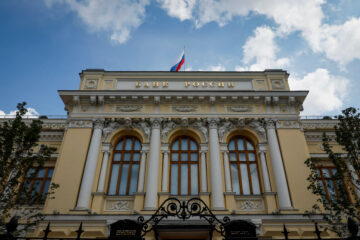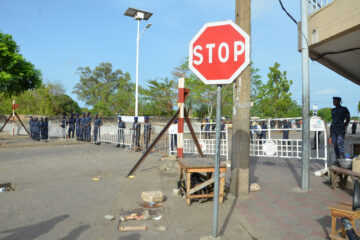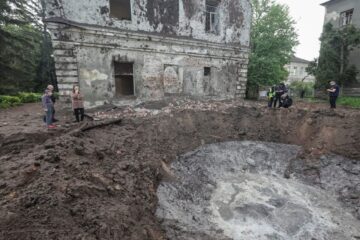UN braces for likely Russian veto of Syria gas attacks probe
The UN Security Council will vote Thursday on whether to extend an investigation to determine who is behind chemical weapons attacks in Syria, with Russia expected to cast a veto.
Russia and the United States have put forward rival draft resolutions on renewing for a year the mandate of the UN-led Joint Investigative Mechanism (JIM), tasked with identifying perpetrators of Syria\’s toxic gas attacks.
President Donald Trump urged the council to support the panel\’s continued work, saying on Twitter that this would "ensure" that President Bashar al-Assad\’s "regime does not commit mass murder with chemical weapons ever again."
Earlier Russian Foreign Minister Sergei Lavrov gave his clearest indication yet that Moscow was prepared to veto the US-drafted measure extending the panel for one year.
"The American resolution has no chance of adoption," Lavrov said during a press conference in Moscow.
He slammed Washington\’s text as "totally unacceptable," arguing that it would extend the mandate "without changing any of the current activities of the mechanism which are in violation of the Chemical Weapons Convention."
UN diplomats said they were expecting a Russian veto of the US text during the council meeting scheduled for 3:00 pm (2000 GMT). The panel\’s mandate expires at midnight.
It would mark the tenth time that Moscow has used its veto power at the council to block action targeting its ally Syria.
The Russian-drafted resolution was unlikely to garner the nine votes required for adoption, diplomats said.
Russia has sharply criticized the JIM after its latest report blamed the Syrian air force for a sarin gas attack on the opposition-held village of Khan Sheikhun that left scores dead.
The attack on April 4 triggered global outrage as images of dying children were shown worldwide, prompting the United States to launch missile strikes on a Syrian air base a few days later.
Washington and its allies have blamed Assad\’s government for the Khan Sheikhun attack, but Syria has denied using chemical weapons, with strong backing from Russia.
A resolution requires nine votes to be adopted at the council, but five countries — Russia, Britain, China, France and the United States — can block adoption with their veto power.
– Victory for those who use chemical weapons –
In its draft, Russia insisted that the panel\’s findings on Khan Sheikhun be put aside to allow for another "full-scale and high-quality investigation" by the JIM, which would be extended for a year.
During a council vote in late October, Russia vetoed a US-drafted resolution on a one-year extension, arguing that it did not want to decide on the fate of the panel before the Khan Sheikhun report.
The United States, Britain and France have insisted that the JIM should be allowed to continue its work and that dozens of other cases of chemical weapons use in Syria must be investigated.
French Ambassador Francois Delattre urged council members to "please think twice before throwing it away, because this would be a major setback for the fundamentals of our common security."
Russian Ambassador Vassily Nebenzia said this week that scrapping the chemical weapons probe in Syria "may send a bad signal, but the way the investigation has been conducted sends an even worse signal."
The joint UN-Organisation for the Prohibition of Chemical Weapons (OPCW) panel was set up by Russia and the United States in 2015 and unanimously endorsed by the council, which renewed its mandate last year.
Previous reports by the JIM have found that Syrian government forces were responsible for chlorine attacks on three villages in 2014 and 2015, and that the Islamic State group used mustard gas in 2015.
SOURCE: AFP
[do_widget_area inner_adsbar]










